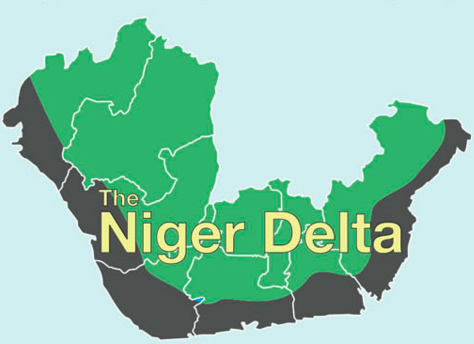WHILE on a fence-mending trip to the Niger Delta as acting President, Professor Yemi Osinbajo recently directed oil companies to relocate their headquarters to the area. This call has received sustained applause from the people of the zone who had over the years complained of neglect, both by the Federal Government and the oil companies whose exploratory activities had caused untold damage to the flora and fauna and the ecological activities of their communities.
The logic behind the call is indeed strong and unassailable. It is indeed not ideal for oil companies who derive their sustenance from the oil-producing areas to locate their headquarters in faraway areas like Lagos and Abuja whose geography have little or no connections to their operations. Indeed, the advantages of locating the headquarters of the oil companies in the Niger Delta far outweigh the disadvantages. For instance, the logistics of operating from Lagos and Abuja, flying equipment into the Niger Delta and housing top staff in Lagos and Abuja are enormous. Relocation to the Niger Delta can tame this problem substantially. It also runs against reason for the oil companies to be interested in paying such huge bills, as against harvesting the ancillary positives of quartering their managerial headquarters in their oil exploration.
The benefits that will accrue to the natives by so doing are awesome. First, the oil-producing communities would be able to enjoy some of the facilities that would naturally come with headquartering the oil companies in their neighbourhood. Second, the adjoining communities would reap substantially from their contiguity to the oil companies’ headquarters. Ancillary benefits like scholarships for indigent students in the area, interventions in water schemes, electricity, road construction and similar benefits will surely come the way of the communities in the event of the relocation. These benefits would further give the communities a sense of belonging and ensure that they see themselves as part and parcel of the exploratory activities of the oil companies, thereby reducing restiveness in the zone.
The above were no doubt the major reasons why the then acting President lent his voice to the clamour by the natives, which has spanned decades now, to have the oil companies relocate their headquarters to the Niger Delta. It is obvious that, in the rapprochement efforts of the government, especially in its bid to stem the rupturing of the national economy as a result of the bombing of oil pipelines, getting the oil-producing communities to feel a sense of belonging in the oil explored from their communities is key to attaining peace in the Niger Delta.
We commend the Federal Government’s commitment to the process of securing peace in the Niger Delta, a sine qua non to a comeback for a Nigeria lately beset by numerous financial ills. The nine states of the Niger Delta will surely benefit from the outcome of this relocation order as it would complement the efforts of government in ensuring that the negative effects of exploratory activities are ameliorated. We are surprised that this had not been implemented by successive governments in the country.
However, aware of the benefits, in terms of reduction of their operating and logistics costs if their headquarters were located in the Niger Delta, why did the oil companies prefer to headquarter their operations hundreds of kilometers away from the oil-producing areas? The readily available answer is that conditions in the oil-producing communities are unfavourable to the oil companies for some reasons, chief of which is security. This then means that the solution to the Niger Delta restiveness lies with the Federal Government, the ultimate beneficiary of the exploratory activities in the zone. Government should make the oil-producing communities conducive security-wise and livable for the oil companies. The ancient cavalier attitude of successive governments to the area, which is seen as a mere revenue generator that should be abandoned once money is made off it, is merely being cloned by the oil multinationals who also see the communities as a beast of burden.
We call on the Federal Government to lead by example and jump-start development in the Niger Delta. After doing this, it should relocate its agencies like the Niger Delta Development Commission (NDDC), Nigeria National Petroleum Corporation (NNPC), Petroleum Product Pricing Regulatory Agency (PPPRA), and the Niger Delta Ministry to the area. They should be distributed across the states in the zone. This will encourage the oil-producing companies to follow the footsteps of the government. Merely ordering their relocation to the area without leading by example would be quite disingenuous.






